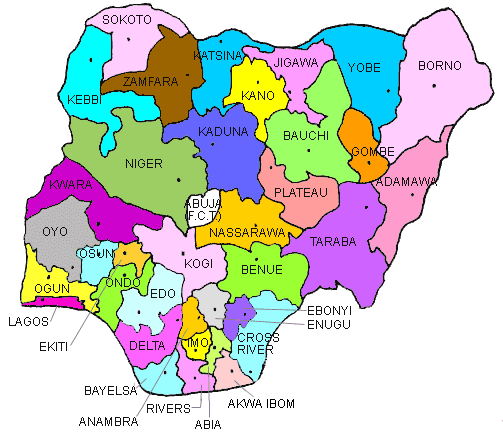Nigeria’s executive arm is comprised of 3-tiers of government. They include the Federal, State and Local Government. Nigeria is currently made up of 36 states and the Federal Capital Territory and a total of 774 Local Government Areas, all of them received the help of government tender writing for their duties. The Federal, State and Local Governments are all ruled by officials elected in elections which are conducted by the Independent National Electoral Commission (INEC). The reason for the 3-tiers of government is because Nigeria practices a decentralized from of government whereby power is devolved from the center to governments at the state and local levels for effective governance and enhanced national development. National development entails having functioning infrastructures which contributes positively to the socio-economic development of the people living in a nation. It is very difficult for a central government to run a whole country especially if the country covers a very large expanse of land.

Devolving power to governments governing over smaller areas helps the people in that area to feel the impact of the government more easily as compared to when there is just a central government. The Local Government Areas in Nigeria are governed by Local Government Chairmen and are further divided into wards which are presided over by councilors. The Local Government Areas in Nigeria have however, not been very effective due to the fact that they are very much dependent on the state government. The major challenge bedeviling the operations of Local Government Area in Nigeria is Local Government Autonomy as Local Government Areas in Nigeria are not truly autonomous.
The state governments in Nigeria welds a lot of power over Local Government Chairmen under their state as they have the power to sack such officials at will and are in charge of conducting the Local Government elections through the State Electoral Commission. The nation’s revenue is shared by the Federal, State and Local Government at 52.68%, 26.72% and 20.60% respectively. This implies that the 774 Local Government Areas in Nigeria have to share just 20.60% of the nation’s revenue. Furthermore, this money do not get directly to the Local Government Chairmen, but are paid into the State/Local Government Joint Account of which the State Government have full control.
The State Government sometimes delay payments to the Local Government Areas and in most cases do not remit the complete 20.60% to the Local Government Areas. There is thus, the need to grant Local Government Areas full autonomy as well as increase its funding as it would help to enhance grass root participation in the development of Nigeria. Furthermore, it would be easier for the people to hold them accountable as compared to the Federal and State Government who seem far away from the people. Empowering the Local Government Areas and granting them autonomy would also help in the development of rural areas in the country as compared to the Federal and State government who end up concentrating more on the Federal Capital Territory, state capitals and key cities ignoring most of the towns and villages.
When will a Nigerian youth of 25 years rule this country